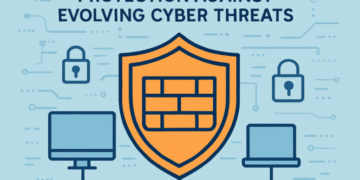The landscape of engineering education is undergoing a significant transformation. With industries demanding more adaptable and future-ready engineers, the need for accessible educational pathways has never been more critical. Traditional, campus-based programs often present barriers for many individuals, including working professionals and those living far from established engineering schools. Today, Masters in Engineering Management online programs offer a pathway to quality engineering credentials without requiring a move or a break from employment.
Online degrees have opened doors for those who were previously hindered by logistics, scheduling, or personal obligations. As universities expand their online offerings to include undergraduate and advanced engineering programs, a greater number of students can pursue their ambitions—regardless of their location or life stage. The result is a more diverse and global cohort of future engineers who can learn on their own terms.
Expanding Access and Opportunity
Access to top-tier engineering education is no longer restricted by a student’s proximity to a university. Online programs break down these barriers, letting learners join from anywhere in the world. This democratization of education is fundamentally shifting the makeup of engineering cohorts, bringing in fresh perspectives and backgrounds. Reports such as those from Inside Higher Ed highlight how remote learning environments are fostering collaborative and inclusive classrooms that reflect the real-world diversity of the engineering field. Additionally, students now have greater flexibility to balance their studies with personal and professional commitments. This shift also encourages universities to innovate in their teaching methods, utilizing advanced technologies and interactive platforms to enhance learning experiences. Ultimately, the increased accessibility and diversity are enriching the learning experience for everyone involved.
Flexible Learning for a Diverse Student Body
The flexibility of online engineering degrees appeals to a wide variety of learners. This includes professionals seeking to upskill, career changers, and recent graduates looking for a convenient route to further education. Evening lectures, asynchronous modules, and on-demand resources make it possible to balance rigorous coursework with work and family commitments. These adaptive formats help ensure students maintain steady progress toward their degrees—even during the busiest phases of life. Many programs also offer support services such as tutoring, virtual office hours, and online discussion forums to enhance the learning experience. Additionally, students can often proceed at their own pace, allowing for a more personalized educational journey. This flexibility is especially valuable for those juggling multiple responsibilities, making advanced education more accessible than ever before.
Harnessing Technology for Enhanced Learning Outcomes
Innovations in digital education technology have elevated the quality of online engineering instruction. Today’s programs are equipped with immersive virtual labs, advanced simulation tools, and interactive modules that encourage hands-on learning. While ongoing debates persist about replicating the in-person lab experience, new developments in AI and virtual reality are increasingly offering students high-fidelity, engaging ways to practice and master engineering concepts. This technological leap narrows the gap between traditional and online learning environments. As a result, students now have more flexible learning options that can accommodate diverse schedules and learning paces. Institutions are also investing more in digital infrastructure to provide equitable access to these advanced tools. Furthermore, educators are developing new pedagogical approaches that integrate these technologies to enhance student engagement and understanding.
Industry Connections and Real-World Applications
One of the defining trends in online engineering education is a growing focus on practical skills and industry engagement. Many programs embed real-world projects, often in collaboration with corporate or nonprofit partners. These projects not only mirror the challenges engineers will face on the job but also help students expand their professional networks. Employers who recruit from these programs report that graduates arrive with experience in teamwork, critical thinking, and exposure to contemporary engineering issues. Additionally, this approach encourages students to develop problem-solving abilities that are directly applicable in their future careers. It also fosters a greater understanding of industry standards and practices, enhancing their readiness for the workforce. As a result, graduates are often better equipped to adapt quickly and contribute effectively from day one.

Tackling the Challenges: From Lab Work to Community Building
Delivering engineering curricula online presents distinct challenges. Chief among them is mirroring the tactile, hands-on nature of traditional laboratory courses. Educators are employing solutions such as remote-controlled equipment, virtual labs, and take-home experiment kits to enhance learning. Another area requiring careful attention is fostering a sense of belonging. Online students can risk feeling isolated, so programs are introducing group projects, team-based assessments, and interactive forums to promote community engagement.
Additionally, institutions are leveraging innovative technologies, such as augmented reality (AR) and virtual reality (VR), to create immersive learning experiences that mimic in-person laboratory settings. They are also offering virtual office hours and mentorship programs to connect students more personally with instructors. These strategies aim to bridge the gap between online and traditional learning, ensuring students gain a comprehensive engineering education.
Who Thrives in an Online Engineering Program?
Success in online engineering degrees requires motivation, adaptability, and sound time-management skills. Those who excel—or are most likely to benefit—are typically organized self-starters who reach out for support when needed. Fortunately, online programs have responded by developing robust advising, peer mentoring, and tutoring services. The result is that a broader range of students with varied learning styles and commitments can succeed in earning engineering credentials from the comfort of their own homes.
The Future: What’s on the Horizon?
The evolution of online engineering education shows no signs of slowing down. Next-generation programs are expected to become even more interactive, with blended models that combine online coursework and periodic in-person residencies or labs. Faculty and instructional designers will likely continue fine-tuning curricula to better align with current and future workforce needs. As online degrees become further recognized—by both industry and academia—students graduating from these programs will continue to shape the future of engineering across sectors.
Conclusion: Online Learning’s Lasting Impact in Engineering
Online learning represents more than a stopgap solution; it’s a powerful instrument in democratizing engineering education and preparing students for tomorrow’s workplace. By making advanced degrees, such as the Master’s in Engineering Management, online, universities are building a more capable, innovative, and globally engaged engineering workforce. For those poised to advance or pivot their engineering careers, online programs provide the flexibility, quality, and real-world relevance they need to excel in an ever-changing industry.










